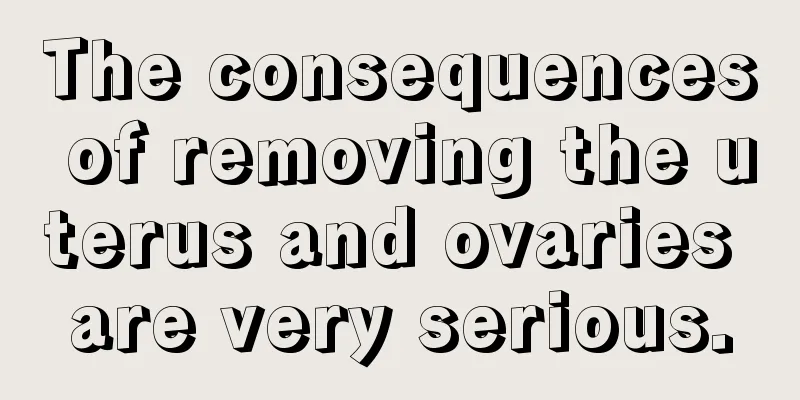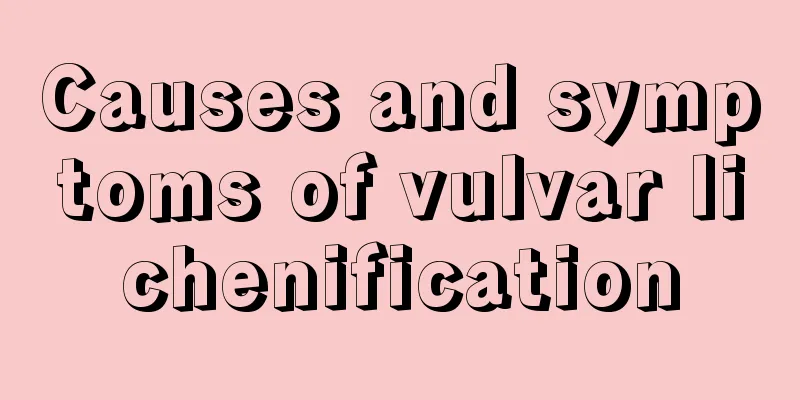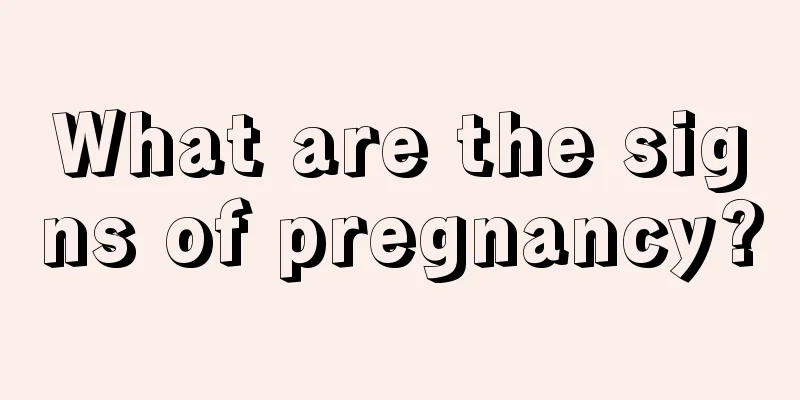The consequences of removing the uterus and ovaries are very serious.

|
The uterus and ovaries are very important to women's health, and the uterus and ovaries are prone to various diseases. If the disease develops seriously, they may need to be directly removed. However, removing the uterus and ovaries will cause many harms, such as decreased sexual function, early menopause, mental abnormalities, etc. 1. Ovarian dysfunction Before menopause, the endocrine system of the uterus and ovaries maintains a delicate dynamic balance. After the uterus is removed, this delicate balance is bound to be disrupted, leading to the degeneration of ovarian function and more obvious menopausal symptoms. 2. Decreased sexual function Estrogen is an important regulatory hormone in female sexual function and is mainly secreted by the ovaries. After a hysterectomy, ovarian function and blood circulation will definitely be affected, causing many women who have undergone a hysterectomy to experience varying degrees of sexual dysfunction, such as difficulty with orgasm, decreased libido, decreased sensation in the reproductive organs, and decreased sexual responsiveness. 3. Early menopause Hysterectomy not only destroys the dynamic endocrine balance between the uterus and ovaries before menopause, but also can cause ovarian function decline. Since a considerable part of the blood supply to the ovaries comes from the ascending branches of the uterine arteries, although hysterectomy in premenopausal women is intended to preserve ovarian tissue as much as possible, the ligation of adjacent blood vessels will still affect the blood supply to the ovaries, reduce ovarian function, and cause a sudden drop in serum estrogen levels. There is a lack of a gradual adaptation process, which can lead to a significant advance in menopausal symptoms. 4. Urinary system affected After the hysterectomy, women's estrogen levels will decrease, causing the elastic tissue around the urethra to become thinner, resistance to decrease, and urethral mucosa to shrink, thus causing urinary tract irritation symptoms such as urinary pain, frequent urination, and urgency. 5. Depression After the hysterectomy, the decrease in estrogen levels will interfere with the secretion and metabolism of central neurotransmitters, causing women to experience varying degrees of depressive symptoms such as insomnia, low mood, and irritability. It will also reduce interest in external things, cause symptoms of insomnia and dreaminess, and greatly reduce the quality of life. |
<<: What should I do if I have abdominal pain and light menstrual flow?
>>: What are the symptoms of chronic pelvic inflammatory disease?
Recommend
Cesarean section uterine incision
During a cesarean section, an incision is made on...
What should pregnant women do if they use cooling oil?
In the hot summer, when mosquitoes bite, cooling ...
Can a bad mood or high stress cause delayed menstruation?
Women are made of water. Women are generally more...
The benefits of drinking lactic acid bacteria for women
Yogurt can be said to be a healthy drink suitable...
Can I eat sour food during confinement?
Confinement refers to the period when a woman res...
How long does it take to get menstruation after abortion?
In recent years, with the progress of society, th...
When is the best time to pickle Chinese mustard greens? What month is the best time to pickle Chinese mustard greens?
We all know that Chinese mustard is a common vege...
Will breast hyperplasia be cured if it is not treated?
When people have breast hyperplasia, their first ...
What medicine should women take for lower abdominal distension
When a woman has abdominal distension, it has a g...
The leucorrhea is a little yellow, has no odor and does not itch
The leucorrhea is a little yellow but has no odor...
Picture of 4-month-old fetus in the belly
Nowadays, pregnant women are more concerned about...
How to judge whether bean curd has gone bad? What does it look like when bean curd goes bad?
We all know that bean curd is a common food. It h...
Is it normal for labia to be different sizes?
When people reach puberty, their bodies begin to ...
Why is there milk in the breasts after abortion?
Abortion is a method for many women to terminate ...
How to give birth quickly
During the third trimester, many mothers are part...









